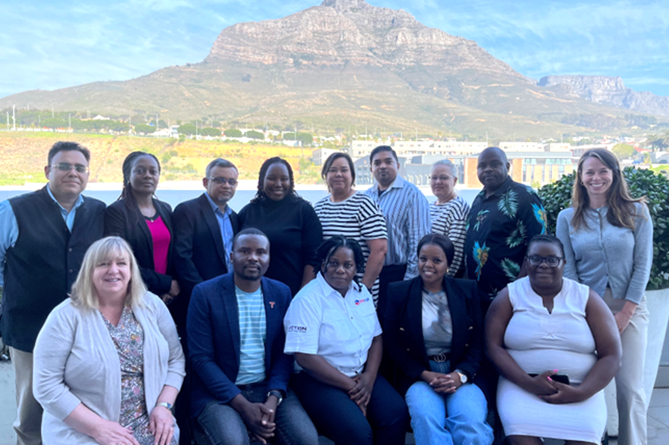
Representatives from USAID and THINK with participants from other USAID TB-focused projects attending the training.
In June, USAID facilitated a training session on Grant and Cooperative Agreement Compliance in Cape Town. This crucial training aimed to bolster the capacity of organizations to comply with USAID’s rules and regulations, thereby enhancing their operational effectiveness.
Chipo Mutambo, Deputy Chief of Party for the USAID ACCELERATE 2 Project, and Nomalungelo Msimango, Senior Finance Officer, represented THINK. Participants included a diverse group of representatives from USAID TB-focused projects across several countries, including Zimbabwe, South Africa, Bangladesh, Malawi, Tanzania, Uganda, and Zambia. This convergence of international expertise provided a rich environment for learning and exchange.
The training covered a variety of key objectives essential for successful engagement with USAID. Participants gained a deeper understanding of the rules, regulations, and policies governing USAID assistance processes. They learned about the different types of assistance awards (grants and cooperative agreements) utilized by USAID and the lifecycle associated with it. The training also highlighted the various roles and responsibilities involved in the assistance process at USAID, emphasizing collaboration and accountability.
Moreover, attendees were introduced to post-award compliance requirements, ensuring that organizations are equipped to meet ongoing obligations. The sessions provided insights into best practices for managing award finances, which are critical for maintaining transparency and efficiency. Finally, participants became familiar with audit requirements, award close-out processes, and effective record-keeping practices.
Described by the THINK attendees as enlightening and empowering, the training fostered valuable discussions that will undoubtedly enhance THINK’s compliance efforts moving forward. The THINK team extends its gratitude to USAID for the technical assistance provided during the training. Such initiatives are vital for strengthening the capacities of organizations, ensuring they can effectively navigate the complexities of funding compliance and maximize their impact in communities.
